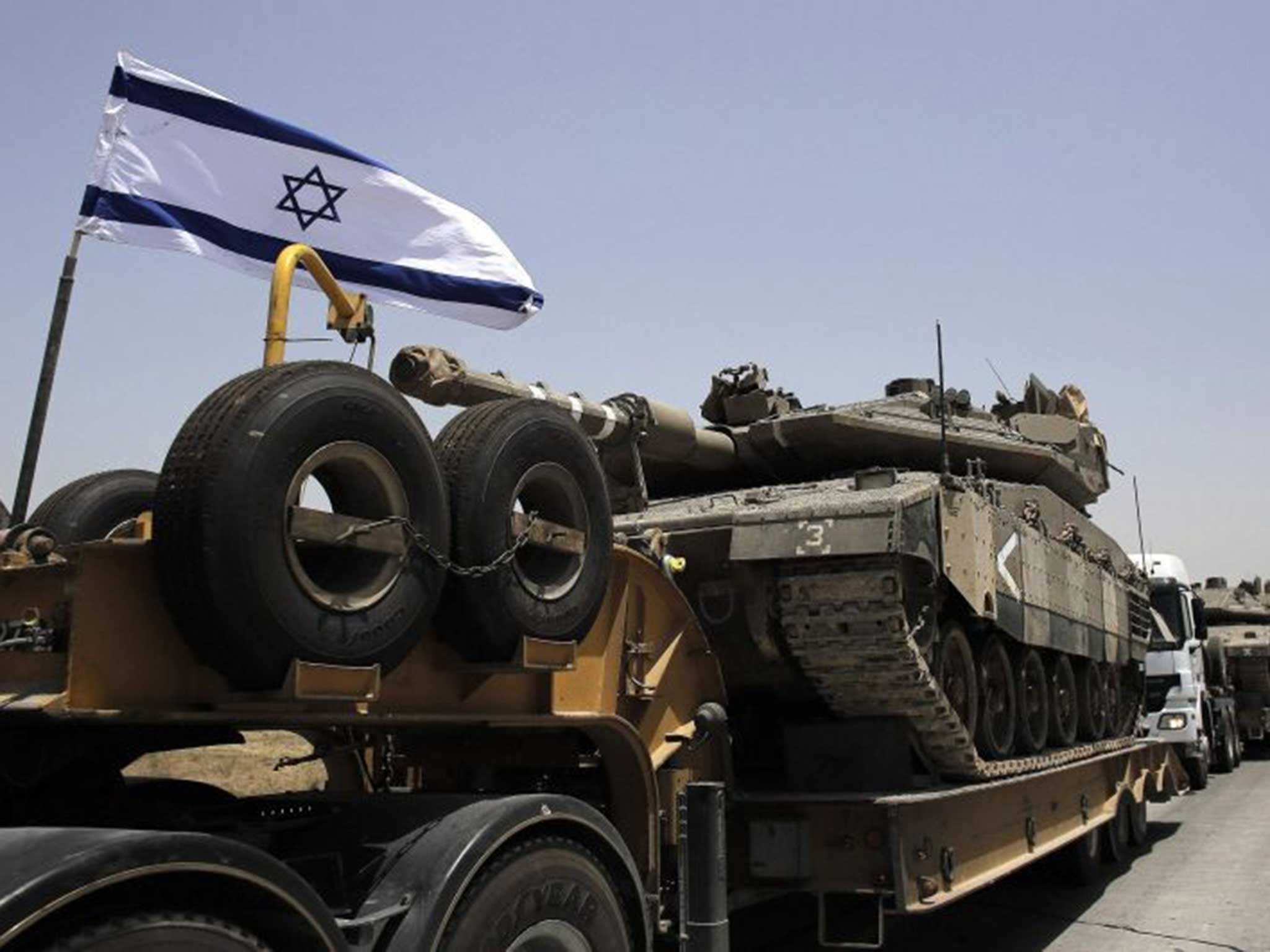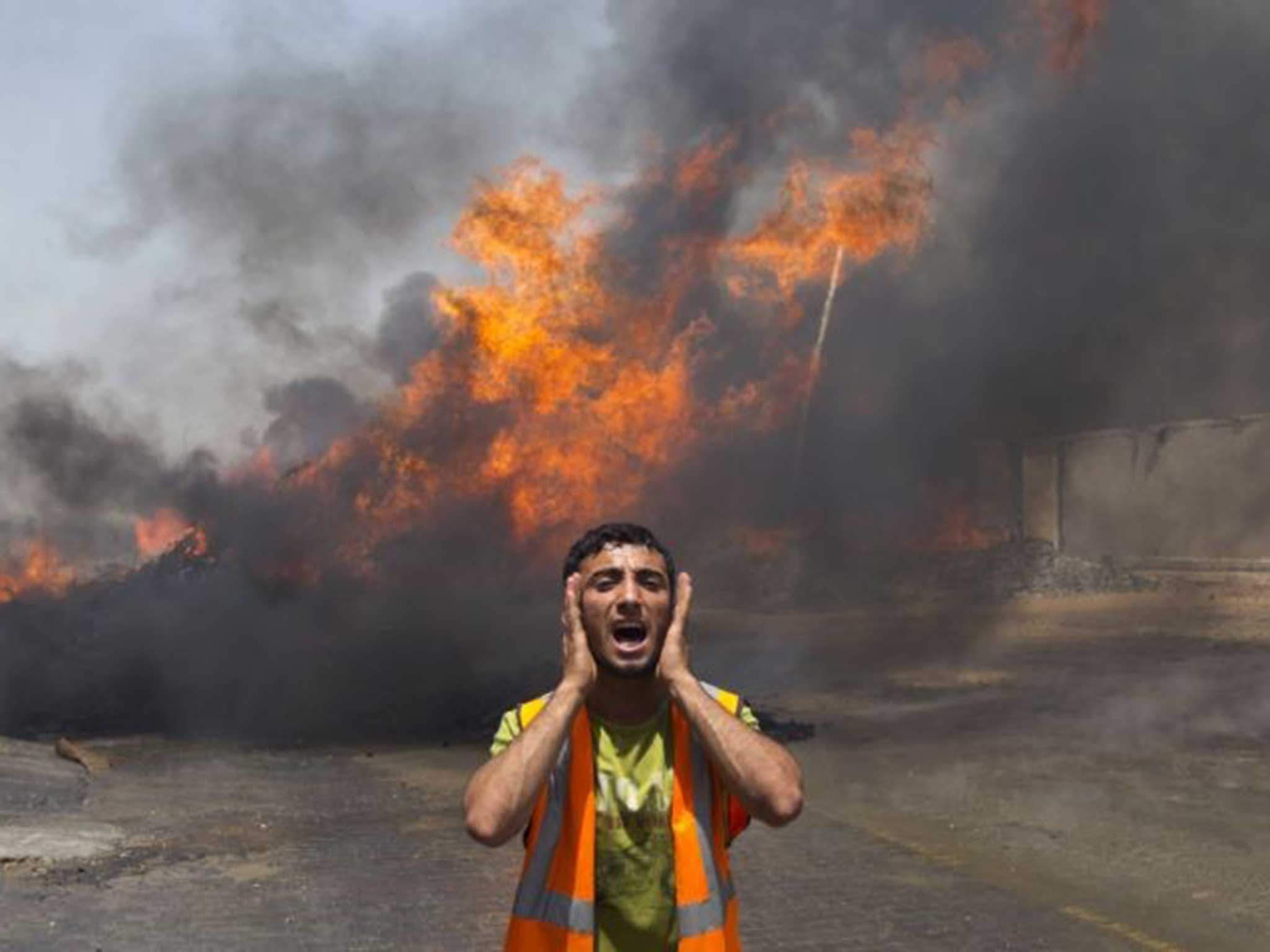Israel-Gaza conflict: UN calls for ceasefire as Israelis muster for ground attack
An invasion would dramatically increase Palestinian fatalities

Your support helps us to tell the story
From reproductive rights to climate change to Big Tech, The Independent is on the ground when the story is developing. Whether it's investigating the financials of Elon Musk's pro-Trump PAC or producing our latest documentary, 'The A Word', which shines a light on the American women fighting for reproductive rights, we know how important it is to parse out the facts from the messaging.
At such a critical moment in US history, we need reporters on the ground. Your donation allows us to keep sending journalists to speak to both sides of the story.
The Independent is trusted by Americans across the entire political spectrum. And unlike many other quality news outlets, we choose not to lock Americans out of our reporting and analysis with paywalls. We believe quality journalism should be available to everyone, paid for by those who can afford it.
Your support makes all the difference.The United Nations Security Council called yesterday for a ceasefire in the Israeli-Palestinian conflict centred on the Gaza Strip, as an Israeli cabinet minister said the army is "ready and poised" for a ground incursion into the coastal enclave.
The statement from the UN said: "The Security Council members called for de-escalation of the situation, restoration of calm and reinstitution of the November 2012 ceasefire."
The aerial bombardment of Gaza by Israel continued yesterday. After a relative lull during the morning hours, militant groups in the Gaza Strip kept up their rocket barrages against Israel, which have so far caused no fatalities.
A Palestinian rocket slammed into the entrance of a building in the southern town of Netivot, causing damage but no injuries. Visiting the site of the attack, internal security minister Yitzhak Aharonovich said: "Everything is ready regarding ground entry. The forces have been prepared and the military is ready and poised for going in."
Prime Minister Benjamin Netanyahu will have to make the final decision on a ground incursion, but a near consensus of the army command favours it in order "to deal a destructive blow to terrorist infrastructure", according to Israel's Ynetnews agency. However, air force commander General Amir Eshel believes air power alone can destroy Hamas's rocketing capability, Israel Radio reported.
A ground invasion would dramatically increase Palestinian fatalities, which have so far been mostly civilians, while also exposing the Israeli army to losses and Israel to international pressure to halt the operation. Analysts say Israel would most likely opt for a limited push into north Gaza and other border areas rather than reoccupying major cities. "If they do a ground operation, the goal will be to achieve additional aims of eliminating Hamas military infrastructure such as tunnels and launching sites, and to heighten the threat against the Hamas set-up in Gaza in order to bring about a ceasefire," said Yossi Alpher, former director of the Jaffee Center for Strategic Studies.
Zahava Gal-On, head of the Meretz party, said that Israel needs to shift to a diplomatic solution. "The bombings from the air and a ground operation won't eliminate the terrorism. This will only bring losses among our soldiers and the Palestinians, and in the end we will be back to square one," she said.

Israeli media reports said yesterday that Egypt is advancing an initiative which would call on Israel to free Hamas prisoners it rearrested following the abduction of three Israeli teenagers. But a senior Israeli official signalled last night that in Israel's view, conditions are not yet ripe for a ceasefire. "Our assessment is that Hamas is not yet ready for it," the official said. "We have been hitting them hard, and what they want is a ceasefire as a time out to lick their wounds and then we'll have rockets again in a day or a week. Ultimately, Hamas has to understand that the rocket fire has to stop and they are not there."
British Foreign Secretary William Hague backed calls for a ceasefire, having spoken to both Palestinian President Mahmoud Abbas and Israeli Foreign Minister Avigdor Lieberman. He said that Israel had "a right to defend itself" against rocket attacks from Gaza but offered "condolences for the loss of civilian lives in Gaza".
He said he would discuss a ceasefire with US Secretary of State John Kerry, as well as German and French foreign ministers when they meet today for talks on Iran.
Join our commenting forum
Join thought-provoking conversations, follow other Independent readers and see their replies
Comments